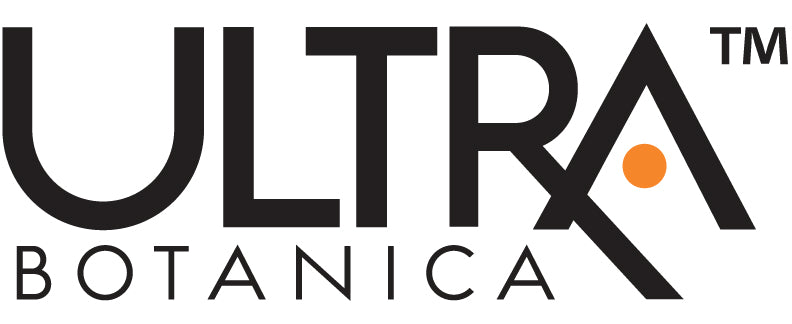In what you may consider stunning news – primarily because you’ve been led to believe it’s as safe as mom’s apple pie – the World Health Organization took a couple small steps to warn us in 2023 about the dangers of the artificial sweetener, aspartame.
In May 2023, the World Health Organization (WHO) advised people who are trying to lose weight to stop consuming non-sugar sweeteners, including aspartame.

That recommendation is based on a systematic review of the current scientific evidence, which suggests that non-sugar sweeteners are linked to higher risks of type 2 diabetes, heart disease, and all-cause mortality. In addition to, increased body weight.
Also, starting in July 2023, the International Agency for Research on Cancer (IARC), WHO’s cancer research arm, began listing aspartame as “possibly carcinogenic to humans.” Many say, “It’s about time.” Others, including regulatory agencies, claim aspartame is fit for human consumption in limited amounts. The challenge may be “limited amounts.” Because it’s everywhere!
Found in a Shocking 6,000 Food Products!
Aspartame is one of the world’s most popular sugar substitutes. It is marketed as NutraSweet®, Equal®, Sugar Twin®, AminoSweet®, Spoonful®, and (mostly in Europe) Canderel®. Aspartame is found in more than 6,000 sugar-free, low-sugar and so-called “diet” drinks and foods.
Aspartame was first approved by the FDA in 1974 for use as a tabletop sweetener and is 200 times sweeter than sugar.
Among the foods and drinks aspartame is found in... Diet Coke, Diet Pepsi, many sugar-free carbonated beverages, sports drinks, and drink mixes. Most brands of sugar-free gum, candies, children’s medicines and vitamins, and a host of other products use aspartame to artificially add sweetness.
These products are the most likely suspects for containing artificial sweeteners such as aspartame:
-
“Diet” or “Zero” sodas
-
Sugar-free gum
-
Flavored waters and sports waters
-
Meal replacements and protein powders
-
Sugar-free desserts and candy
-
Chewable vitamins and medications
-
Coffee sweeteners
Yet numerous studies link aspartame to many serious health issues.

90 FDA Documented Symptoms
Just a few of the 90 different documented symptoms listed in an FDA report as being caused by aspartame include:
-
Headaches & migraines
-
Dizziness
-
Seizures
-
Nausea
-
Numbness
-
Muscle spasms
-
Weight gain
-
Rashes
-
Depression
-
Fatigue
-
Irritability
-
Tachycardia
-
Insomnia
-
Vision problems
-
Hearing loss
-
Loss of taste
-
Heart palpitations
-
Breathing difficulties
-
Anxiety attacks
-
Slurred speech
-
Memory loss
-
Joint pain
-
Vertigo & tinnitus
In fact, it is the food additive with the most complaints of all.
So, if you have any health issues at all, you owe it to yourself to read on and see if this might be the hidden link.
What is Aspartame
Aspartame is made up of three chemicals – phenylalanine, aspartic acid, and methanol.
Phenylalanine (50% of aspartame
Phenylalanine is an amino acid normally found in the brain. Ingesting aspartame, especially along with carbohydrates, can lead to excessive levels of phenylalanine buildup.
Excessive levels of phenylalanine in the blood causes decreased serotonin in the brain, leading to emotional disorders such as depression.
Aspartic acid (40% of aspartame
Dr. Russell Blaylock, a professor of neurosurgery at the Medical University of Mississippi, published a book detailing the damage caused by ingesting excessive aspartic acid from aspartame.
He cites 500 scientific references to show how excess free excitatory amino acids such as aspartic acid and glutamic acid in our food supply is causing serious chronic neurological disorders.
Aspartate and glutamate act as neurotransmitters in the brain, which can result in the influx of too much calcium into cells, triggering cell death. That’s why they’re called, “excitotoxins.” They excite, or stimulate neural cells, to the point of death.
Methanol (10% of aspartame)
Methanol is a wood alcohol and a deadly poison. The EPA considers methanol a cumulative poison due to the very low rate of excretion once absorbed.
In the body, methanol is oxidized to formaldehyde and formic acid. Both metabolites are toxic.
Formaldehyde is known as a carcinogen, may damage DNA, and is linked to many other health issues. These metabolites can affect the neurochemical state of the brain and influence the level of neurotransmitters. Maternal consumption during pregnancy is linked with an increased risk of autism in children.
Aspartame’s Serious Health Risks
Not surprisingly, industry-sponsored studies have reported no problems with aspartame.
Yet dozens of independent studies conducted over decades have linked aspartame to a long list of health problems, including:
-
Cancer. One of the most serious allegations against aspartame is its carcinogenic effects. Meaning it’s linked with increased cancer risk, largely due to its breakdown into formaldehyde. Higher risks were observed for breast cancer and obesity-related cancers. [7]
-
Brain tumors. Evidence suggests that aspartame triggers an aggressive type of malignant brain tumors. [8]
-
Neurotoxicity, brain damage and mood disorders. Aspartame has been linked to behavioral and cognitive problems including learning problems, seizures, irritable moods, anxiety, depression, and insomnia. [9]
-
Headaches and migraines. Aspartame may be an important dietary trigger for headaches. Studies show a significant increase in headache and migraine frequency in some people who consume aspartame. [10]
-
Decreased kidney function. Consumption of more than two servings a day of artificially sweetened soda is associated with 2-fold increase in decreased kidney function in women. [11]
-
Stroke, dementia, and Alzheimer’s disease. People drinking diet soda daily were almost three times as likely to develop stroke and dementia as those who consumed it weekly or less. [12,13]
-
Increased risk of obesity. Increase in weight and waist circumference – which also raises risks of metabolic syndrome, type 2 diabetes, and cardiovascular events. [1] Related, it increases body mass index (BMI). [5]
-
Increased appetite. Promotes excessive weight gain, sugar cravings and sugar dependence. [3]
-
Promotes diabetes and insulin resistance. Induces glucose intolerance by altering gut microbiota in dangerous ways. [2, 6]
However, while these issues have some evidence, it’s not always rock-solid, in terms of being backed by double blind studies. And despite the many complaints regulatory agencies have received about aspartame, apparently there’s not a lot of interest in paying for studies that might make industry’s non-sugar sweetener profit bonanza go away.
But a word to the wise... if you have unexplained health issues that don’t seem to get resolved from other actions, look at your aspartame consumption. It could be your missing link.

How to Hydrate for Health
There’s a health-promoting way to hydrate, and one that invites metabolic and other major health problems.
First rule of hydration: Focus on drinking plenty of plain, filtered water. If you need more flavor, add a few slices of lemons, limes, cucumbers, cherries, peaches, or a few berries such as blackberries or strawberries to create a fresh healthy enhancement.
Whatever you do... don’t swap out diet soda with regular soda or fruit juice. They’re both loaded with sugars that pummel your liver and don’t do your waistline or the rest of your body any favors either.
Consuming plenty of water is paramount for good health. Your body will thank you for it!
Other Tips to Avoid Aspartame
Since aspartame and other artificial sweeteners are found in so many foods, read labels. Automatically suspect that all products contain it unless you can easily tell otherwise.
Start with your pantry and see if food products you already own contain aspartame. Look for the food items named above as your most likely suspects.
Another easy way to avoid artificial sweeteners such as aspartame (in all its many disguises) is to stick to eating real food that you prepare for yourself – such as meat, fish, vegetables, fruits, and nuts.
Conclusion
For some people—especially those with insulin resistance, gut issues, or carb cravings—artificial sweeteners may backfire despite their zero-calorie promise. If you want risk-free zero calories, opt for filtered water.

Frequently Asked Questions
1. What is aspartame and why is it used in food and drinks?
Aspartame is an artificial sweetener used to replace sugar in many low-calorie and “diet” products. It's approximately 200 times sweeter than sugar and is commonly found in sodas, sugar-free gum, yogurt, and flavored water.
2. What are the common side effects of consuming aspartame?
Many people report migraines and headaches, dizziness, mood changes, digestive discomfort, depression, or brain fog after consuming aspartame. Individuals with phenylketonuria (PKU) must avoid it entirely due to their inability to metabolize phenylalanine, a component of aspartame.
3. Is aspartame safe to consume daily?
According to regulatory agencies like the FDA and EFSA, aspartame is safe within established daily limits. However, some studies and anecdotal reports suggest potential concerns for sensitive individuals or with long-term, high-volume use.
4. How can I tell if a product contains aspartame?
Check the ingredients list for the word “aspartame”, “phenylalanine”, or brand names like Equal, NutraSweet, or AminoSweet. Look for the additive code E951 if you're in Europe or shopping imported goods.
5. What are the best alternatives to aspartame for sweetening foods and drinks?
Natural sweeteners like monk fruit, raw honey, and pure maple syrup are popular alternatives to aspartame. These options offer sweetness with fewer health concerns and can be found in many clean-label or natural food products.





Share:
Broccoli: The Nutritional Powerhouse
Could Sleep Be Your Wellness Superhero?